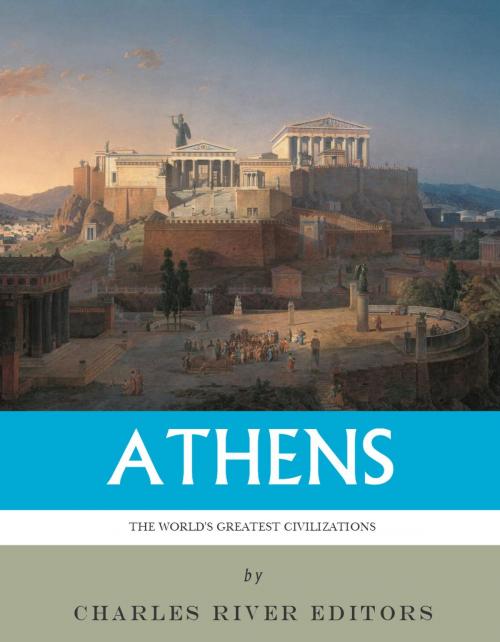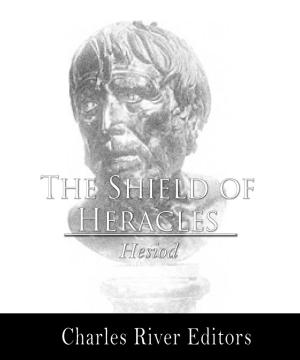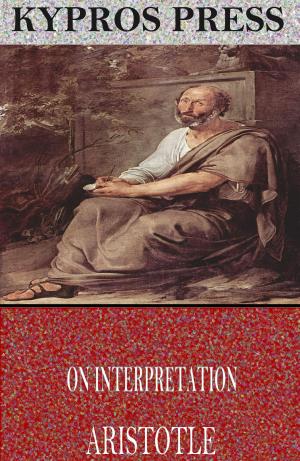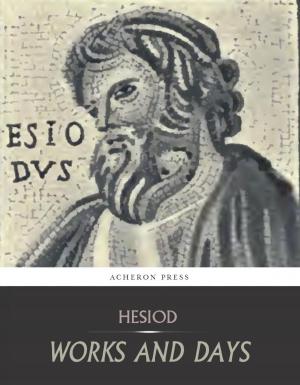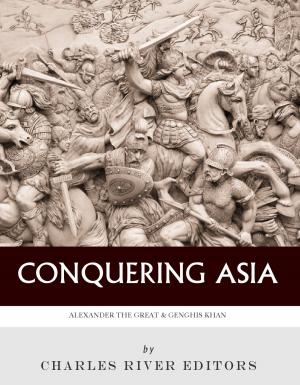The Worlds Greatest Civilizations: The History and Culture of Ancient Athens
Nonfiction, History, Ancient History, Greece, Civilization| Author: | Charles River Editors | ISBN: | 9781475320152 |
| Publisher: | Charles River Editors | Publication: | December 5, 2012 |
| Imprint: | Language: | English |
| Author: | Charles River Editors |
| ISBN: | 9781475320152 |
| Publisher: | Charles River Editors |
| Publication: | December 5, 2012 |
| Imprint: | |
| Language: | English |
*Discusses the lives and influence of famous Athenians like Socrates, Plato, Aristotle, Pericles, and more.*Explains the democratic system organized by the Athenians. *Describes how triremes were built and operated, as well as the method of naval warfare mastered by the Athenians. *Includes the famous Funeral Oration of Pericles during the Peloponnesian War. *Includes pictures of Athens and important people and places in its history.*Includes a Table of Contents. What I would prefer is that you should fix your eyes every day on the greatness of Athens as she really is, and should fall in love with her. The Funeral Oration of Pericles, quoted by ThucydidesDominated to this day by the sprawling white marble complex of the Acropolis, Athens is a city which is immensely and rightly proud of its past. For a period of roughly three centuries, the polis of Athens stood, if not in a position of unchallenged supremacy among the cities of Hellas, then at the very least among its three most important polities. Its fledgling Empire, though small by the standards later set by Alexander or the Romans, or even by those of its ancient enemy Persia, nonetheless encompassed cities as far afield as Asia Minor and Southern Italy, a remarkable fact considering such expansion was achieved by the inhabitants of a single city and its immediate surroundings, rather than by an entire nation. For much of its history, the Athenian navy was the single mightiest force in the Mediterranean, having defeated the overwhelming might of Persia in pitched battle upon the open sea numerous times. The Athenian army itself, though subordinate to its naval power a sop to the fact that it was trade and empire-building that had made Athens rich was nothing to be sneered at, as it succeeded in meting out a humiliating defeat to Dariuss Persians at Marathon.Yet despite a martial tradition that, if taken as a whole, was second to none save the Spartans, Athens is chiefly remembered for two reasons: its political system, which would in time form the nucleus of all Western democratic systems of government, and the remarkable number of outstanding individuals which, during the Golden Age of Athens, lived and flourished in the enlightened city-state. The Ancient Athenians formed the backbone of the Wests entire culture, from the arts to philosophy and everything inbetween. In virtually all fields of human endeavor Athens was so much at the forefront of dynamism and innovation that the products of its most brilliant minds remain not only influential but entirely relevant to this day. In the field of medicine, the great physician Hippocrates not only advanced the practical knowledge of human anatomy and care-giving but changed the entire face of the medical profession. The great philosophers of Athens, men like Aristotle, Socrates, and Plato, literally revolutionized the way people thought about topics like logic, reason, and good and evil. Great architects and sculptors such as Phidias produced works of art of such breathtaking realism and startling dynamism that they later formed the driving force behind the resurgence of sculpture during the Renaissance and served as masters to artists such as Michelangelo, Bernini, and Donatello. The Worlds Greatest Civilizations: The History and Culture of Ancient Athens comprehensively covers the history and culture of the famous Greek city-state, looking at their religious, political, and military past, and examining all their accomplishments. You will learn about Ancient Athens like you never have before.
*Discusses the lives and influence of famous Athenians like Socrates, Plato, Aristotle, Pericles, and more.*Explains the democratic system organized by the Athenians. *Describes how triremes were built and operated, as well as the method of naval warfare mastered by the Athenians. *Includes the famous Funeral Oration of Pericles during the Peloponnesian War. *Includes pictures of Athens and important people and places in its history.*Includes a Table of Contents. What I would prefer is that you should fix your eyes every day on the greatness of Athens as she really is, and should fall in love with her. The Funeral Oration of Pericles, quoted by ThucydidesDominated to this day by the sprawling white marble complex of the Acropolis, Athens is a city which is immensely and rightly proud of its past. For a period of roughly three centuries, the polis of Athens stood, if not in a position of unchallenged supremacy among the cities of Hellas, then at the very least among its three most important polities. Its fledgling Empire, though small by the standards later set by Alexander or the Romans, or even by those of its ancient enemy Persia, nonetheless encompassed cities as far afield as Asia Minor and Southern Italy, a remarkable fact considering such expansion was achieved by the inhabitants of a single city and its immediate surroundings, rather than by an entire nation. For much of its history, the Athenian navy was the single mightiest force in the Mediterranean, having defeated the overwhelming might of Persia in pitched battle upon the open sea numerous times. The Athenian army itself, though subordinate to its naval power a sop to the fact that it was trade and empire-building that had made Athens rich was nothing to be sneered at, as it succeeded in meting out a humiliating defeat to Dariuss Persians at Marathon.Yet despite a martial tradition that, if taken as a whole, was second to none save the Spartans, Athens is chiefly remembered for two reasons: its political system, which would in time form the nucleus of all Western democratic systems of government, and the remarkable number of outstanding individuals which, during the Golden Age of Athens, lived and flourished in the enlightened city-state. The Ancient Athenians formed the backbone of the Wests entire culture, from the arts to philosophy and everything inbetween. In virtually all fields of human endeavor Athens was so much at the forefront of dynamism and innovation that the products of its most brilliant minds remain not only influential but entirely relevant to this day. In the field of medicine, the great physician Hippocrates not only advanced the practical knowledge of human anatomy and care-giving but changed the entire face of the medical profession. The great philosophers of Athens, men like Aristotle, Socrates, and Plato, literally revolutionized the way people thought about topics like logic, reason, and good and evil. Great architects and sculptors such as Phidias produced works of art of such breathtaking realism and startling dynamism that they later formed the driving force behind the resurgence of sculpture during the Renaissance and served as masters to artists such as Michelangelo, Bernini, and Donatello. The Worlds Greatest Civilizations: The History and Culture of Ancient Athens comprehensively covers the history and culture of the famous Greek city-state, looking at their religious, political, and military past, and examining all their accomplishments. You will learn about Ancient Athens like you never have before.
